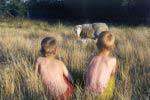 |
Organic Agriculture in Social Entirety - Principles versus Practices
The basic principles and the actual evolution of organic agricultural practices in Denmark form the research field of this project. The point of departure stems from two provisionally established facts; (1) organic agriculture is stated as a comprehensive notion considering both man, society, and nature that is wholly juxtaposed to conventional/industrial segregated agriculture; (2) the trajectory of organic agriculture actually observed in the last decade indicates that, in many ways, organic agriculture has had a tendency to mimic conventional agriculture. Thus, the first objective is to explain the apparent mismatch between stated principles and the observed trajectory. This objective will basically be achieved by answering whether or not the causes can be traced to inadequate principles and/or to social constraints. The second objective is to suggest where and how solutions to dissolve the current mismatch can be found. The fulfilment of the latter objective depends upon the results of the first. Further it is our third objective to conduce to the evolution of comprehensive approaches enabling in-depth multidisciplinary analysis of complex problems.
The project will be accomplished by means of a research group in dialogue with key actors and informants, a multidisciplinary Delphi-panel, and international experts, while communication primarily will take place by means of publications and a closing seminar. The research group is responsible for descriptions, formulation of conceptual frameworks and analyses; in addition the group will function as administrator for the Delphi-panel. The latter will be involved both ad hoc to enlighten and inform the individual members of the research group in the ongoing processes and progress made and as a whole to ensure consistent and coherent descriptions, conceptions, and suggestions. The international seminars will be used to provide suggestions and assessments to ensure adequate quality in the process and deliverables.
The project is designed to facilitate a cognitive process where resolved questions and emergent issues deserved of further inquiry are interacting. The objectives and methodological frames are determined as indicated above while the descriptions of the two facts and the conceptual frameworks are the primary guidelines to be initially determined. They are initially determined because the project needs a conceptual basis for and descriptions of the problem to begin the process of inquiry. They are determined initially to enable an open search for a consistent and coherent recognition of the problem by means of the interplay between the research group, the Delphi-panel, informants, and international experts. Through this interplay the initial description and conceptual frameworks might turn up as inadequate and then be revised or supplemented according to current results.
The present description contains two interacting lines to the target. One as described above (WP1A, WP2A, and WP3) with organic agriculture as the starting point and another more focused on dialogue on the organic food industry (WP1B and WP2B). To facilitate the analysis of mismatches in the organic food-processing sector suitable methodological and substantial reflections will be a separate task in WP1B and WP2B.
Publications
Project title
III.9 Organic Agriculture in Social Entirety - Principles versus Practices (OASE)
Project leader
Jan Holm Ingemann, Ph.D.
Agricultural Economics
Department of Economics, Politics and Public Administration
Aalborg University (AAU)
Fibigerstraede 1, DK 9220 Aalborg East
e-mail: ingeman@socsci.auc.dk
Project participants
Research group (WP1A, WP2A, WP3)
Pia Johansen, project assistant
Saki Ichihara, research trainee
Chris Kjeldsen, PhD scholar (person-months await negotiations with DARCOF)
NN, research assistant
Research group (WP1B, WP2B, Danish Technical University (DTU))
Niels Heine Kristensen, Associate Professor, PhD (responsible for WP1B & WP2B)
Thorkild Nielsen, Assistant Professor
Maria Bruselius, Research Assistant
NN, Research Assistant
Partners attached to the research group (WP1A, WP2A,WP3) (‘Delphi-panel’)
Hugo Alrøe, Postdoctoral Scientist, Danish Research Centre for Organic Farming
Finn Arler, Associate Professor, Dept. of Planning and Development, Aalborg University
Erik Christensen, Associate Professor, Dept. of Economics, Politics and Public Administration, Aalborg University
Jens Christensen, Associate Professor, Dept. of Development and Planning, Aalborg University
Carsten Daugbjerg, Associate Professor, Dept. of Political Science, Aarhus University
Claus Heinberg, Associate Professor, Dept. of Environment, Technology and Social Studies, Roskilde University
Bent Hindrup Andersen, Researcher, Danish Institute of Agricultural Science (DIAS), Research Centre Bygholm
Jesper Holm, Associate professor, Dept. of Environment, Technology and Social Studies, Roskilde University
Andrew Jamison, Professor, Dept. of Development and Planning, Aalborg University
Pernille Kaltoft, Senior Scientist, Dept. of Systems Analysis, National Environmental Research Institute
Jakob Magid, Associate Professor, Dept. of Agricultural Sciences, Laboratory of Plant Nutrition, Royal Veterinary and Agricultural University
Mette Meldgaard, Policy analyst, The National Association for Organic Farming
Niels Heine Kristensen, Associate Professor, Dept. of Technology and Society, Danish Technical University
Jeppe Læssøe, Senior Scientist, Department of Policy Analysis, National Environmental Research Institute
Eskild Holm Nielsen, Associate Professor, Dept. of Development and Planning, Aalborg University
Egon Noe, Researcher, Dept. Agricultural Systems, Danish Institute of Agricultural Science (DIAS), Research Centre Foulum
Jesper Rasmussen, Associate Professor, Dept. of Agricultural Science, The Royal Veterinary and Agricultural University
Arne Remmen Associate Professor, Dept. of Development and Planning, Aalborg University
Bodil Søgaard Associate Professor, Dept. of Agricultural Sciences, Organic Farming Unit, The Royal Veterinary and Agricultural University
Hanne Tanvig, Head of Centre, Danish Centre for Rural Research and Development
|